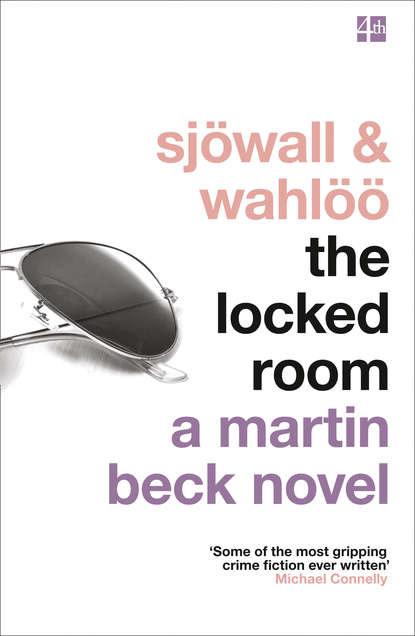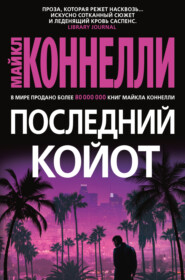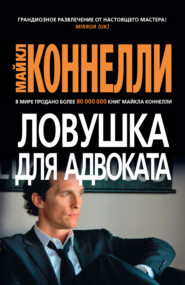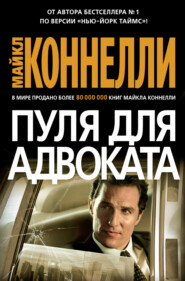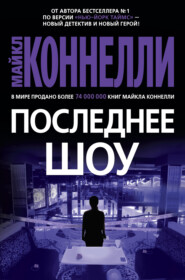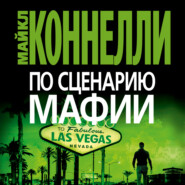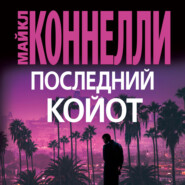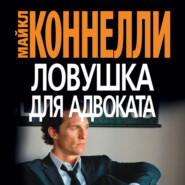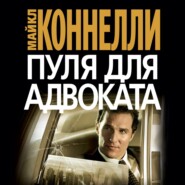По всем вопросам обращайтесь на: info@litportal.ru
(©) 2003-2025.
✖
The Locked Room
Автор
Год написания книги
2019
Настройки чтения
Размер шрифта
Высота строк
Поля
‘Yes, in such cases one has to mind one's p's and q's. The fact is, we've one hell of a lot to attend to.’ He looked around. ‘Even if you don't realize it here, we're overworked. You can't start playing at Sherlock Holmes every time you come across a dead tramp. Was there anything else?’
‘Yes, one thing. I'd like to point out that your handling of this case has been atrocious.’
‘What?’ Gustavsson got up. All of a sudden it seemed to have dawned on him that Martin Beck was in a position to mar his career – perhaps seriously. ‘Wait a minute,’ he said. ‘Just because I didn't see those bloodstains and a gun that wasn't there …’
‘Sins of omission aren't the worst ones,’ Martin Beck said. ‘Even if they, too, are unforgivable. To take an example: you called the police doctor and gave her instructions built on erroneous and preconceived ideas. Further, you fooled the two constables into thinking the case was so simple that you only had to walk into the room and look around for the whole matter to be cleared up. After declaring no criminological investigation was needed, you had the body carried away without even having any photos taken.’
‘But, my God,’ Gustavsson said. ‘The old guy must have taken his own life.’
Martin Beck turned around and looked at him.
‘Are these official criticisms?’ said Gustavsson, alarmed.
‘Yes, in high degree. Good day.’
‘Wait a minute. I'll do all I can to help …’
Martin Beck shook his head, and the man left. He seemed worried. But before the door had quite had time to close, Martin Beck heard him utter the words: ‘Old bastard …’
Naturally Aldor Gustavsson ought never to have been a detective sergeant, nor even a policeman of any sort. He was untalented, impudent, conceited, and had completely the wrong approach to his job. The best of the uniformed force had always been recruited into the CID. And probably still were. If men like him had made the grade and become detectives even ten years ago, what were things going to be like in the future?
Martin Beck felt his first working day was at an end. Tomorrow he'd go and have a look at this locked room himself. What was he to do tonight? Eat something, anything, and then sit leafing through books he knew he ought to read. Lie alone in his bed and wait for sleep. Feel shut in.
In his own locked room.
8 (#ulink_635b326b-5677-5ba7-8bfd-608962c52084)
Einar Rönn was an outdoor type. He had chosen a career in the police because it kept him on the move and offered lots of opportunities to be outdoors. As the years had passed and one promotion had followed another, his working day had progressively tied him to a sedentary position behind his desk, and his moments in the fresh air, insofar as the Stockholm air can be called fresh, had become steadily rarer. It had become crucial to his existence to be able to spend his holidays in the wild mountain world of Lapland he had come from. Actually he detested Stockholm. Already, at forty-five, he had begun to think about his retirement, when he'd go home to Arjeplog for good.
His annual holiday was approaching, and already he was beginning to be apprehensive. If this bank business, at least, hadn't been cleared up, he might at any moment be asked to sacrifice it.
In order to cooperate actively in bringing the investigation to some sort of conclusion, he had taken it upon himself, this Monday evening, to drive out to Sollentuna and talk to a witness, instead of going home to Vällingby and his wife.
Not only had he volunteered to call on this witness, who could just as easily have been summoned to the CID in the customary way; he had even showed such enthusiasm for his mission that Gunvald Larsson wondered whether he and Unda had had a quarrel.
‘Sure, of course not,’ Rönn said, with one of his peculiar non sequiturs.
The man Rönn was to visit was the thirty-two-year-old metal worker who had already been interrogated by Gunvald Larsson on what he'd witnessed outside the Hornsgatan bank. His name was Sten Sjögren, and he lived alone in a semi-detached house on Sångarvägen. He was in his little garden in front of the house, watering a rose bush, and as Rönn climbed out of his car he put down his watering can and came over to open the gate. Wiping the palms of his hands on the seat of his trousers before shaking hands, he went up the steps and held the front door open for Rönn.
The house was small and on the ground floor; apart from the kitchen and hall there was only one room. The door to it stood ajar. It was quite empty. The man caught Rönn's look.
‘My wife and I have just divorced,’ he explained. ‘She took some of the furniture with her, so perhaps it's not too cosy for the time being. But we can go upstairs instead.’
At the top of the stairs there was a rather large room with an open fireplace, in front of which stood a few ill-matched armchairs grouped around a low white table. Rönn sat down, but the man remained standing.
‘Can I get you a drink?’ he asked. ‘I can heat up some coffee. Or I expect I've some beer in the refrigerator.’
‘Thanks, I'll take the same as you,’ Rönn said.
‘Then we'll take a beer,’ said the man. He ran off downstairs and Rönn heard him banging about in the kitchen.
Rönn looked around the room. Not much furniture, a stereo, quite a few books. In a basket beside the fire lay a bundle of newspapers. Dagens Nyheter, Vi, the communist paper Ny Dag, and The Metal Worker.
Sten Sjögren returned with glasses and two beer cans, which he set down on the white table. He was thin and wiry and had reddish, tousled hair of a length Rönn regarded as normal. His face was spattered with freckles, and he had a pleasant frank smile. After opening the cans and pouring them out he sat down opposite Rönn, raised his glass to him, and drank.
Rönn tasted his beer and said: ‘I'd like to hear about what you saw on Hornsgatan last Friday. It's best not to give your memory time to fade.’ That sounded really good, thought Rönn, pleased with himself.
The man nodded and put down his glass. ‘Yes, if I'd known it was both a hold-up and a murder I'd sure have taken a better look both at the chick and at the bloke in the car.’
‘You're the best witness we have so far anyway,’ Rönn said encouragingly. ‘So you were walking along Hornsgatan. Which way were you heading?’
‘I was coming from Slussen and was heading for Ringvägen. This chick came up from behind and bumped into me quite hard as she ran past.’
‘Could you describe her?’
‘Not too well, I'm afraid. I only really saw her from behind – and for a split second from the side view as she climbed into the car. She was shorter than me, about six inches I reckon. I'm five foot ten and a half. The age is a bit hard to specify, but I don't think she was younger than twenty-five and no older than thirty-five, about thirty I'd say. She was dressed in jeans, ordinary blue, and a light blue blouse or shirt, hanging outside her trousers. What she had on her feet I didn't think about, but she was wearing a hat – a denim hat with quite a wide brim. She had fair hair, straight and not quite as long as a lot of girls wear it these days. Medium length, one could say. Then she had a green shoulder bag, one of those American military bags.’
He took out a packet of cigarettes from the breast pocket of his khaki shirt and held them out to Rönn, who shook his head and said: ‘Did you see if she was carrying anything?’
The man got up, took down a box of matches from the shelf above the open fireplace, and lit a cigarette. ‘No, I'm not sure of that. But I suppose she could have been.’
‘Her body build? Was she thin, or fat, or …’
‘Medium, I reckon. In any case neither particularly thin or fat. Normal, one might say.’
‘Didn't you catch her face at all?’
‘I suppose I saw it very fleetingly as she climbed into the car. But for one thing she was wearing that hat, and for another thing she had big sunglasses on.’
‘Would you recognize her if you saw her again?’
‘Not by her face anyway. And probably not if I saw her in different clothes, in a dress for example.’
Rönn sipped his beer thoughtfully. Then he said: ‘Are you absolutely certain it was a woman?’
The other looked at him in surprise. Then he frowned and said hesitatingly: ‘Yes, at least I took it for granted it was a chick. But now you mention it I'm not so sure. It was mostly a general impression I got, one usually has a feeling who's a guy and who's a chick, even if nowadays it can be hard to tell 'em apart. I can't actually swear it was a girl. I didn't have time to see what sort of breasts she had.’
He fell silent and peered at Rönn through the cigarette smoke. ‘No, you're right about that,’ he said slowly. ‘It didn't have to be a girl; it could very well have been a guy. Moreover, that would be more plausible. You don't often hear of girls who rob banks and shoot people.’
‘You mean, then, it could just as easily have been a man?’ Rönn asked.
‘Yes, now that you mention it. In fact it must have been a guy.’
‘Well, but the other two? Can you describe them? And the car?’
Sjögren took a last drag at his cigarette, then threw the butt into the fireplace, where a large number of cigarette ends and dead matches lay already.
‘The car was a Renault 16, I know that for sure,’ he said. ‘It was light grey or beige, I don't know what the colour's called; but it's almost white. I don't remember all the number, but it was an “A” registration and I've a mental image of two threes in the number. There could have been three, of course, but two at least, and I think they stood one after the other, somewhere in the middle of the row of figures.’





